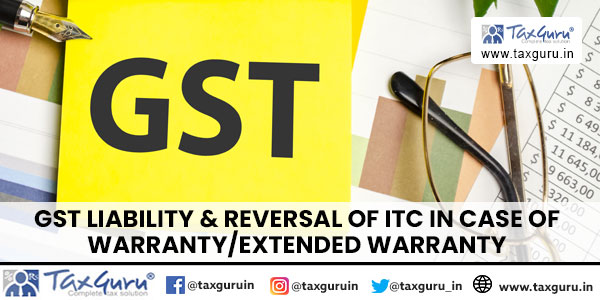The Telecom major Vodafone won a long pending case against the Indian government in an international court over Rs.22, 000 crore in retrospective tax dispute. Let’s take a look at what happened;
Facts of the Case:
The main companies involved were as under:
| HTIL | Hutchison Telecommunications International Ltd (Hong Kong). It was the seller and earner of Capital Gain. |
| VIH | Vodafone International Holdings BV (Netherlands). It was the purchaser of shares of CGP. |
| CGP | CGP Investments (Holdings) Ltd. (Cayman Islands Mauritius). It is the company whose share has been transferred. |
| HEL | Hutchison Essar Ltd. (India). Transfer of CGP shares led to indirect transfer of HEL to VIH. |
HEL was an Indian Company in which CGP (Mauritius) was holding 67% shares and Essar holding the remaining 33 % shares. CGP was a 100% subsidiary of HTIL (Hong Kong). A Share Purchase Agreement (SPA) was signed between the Non-resident Companies on 11.2.2007 between VIH and HTIL, whereby HTIL agreed to procure the sale of CGP shares.
Issue Involved:
Whether the transfer of shares between two foreign companies, resulting in extinguishment of controlling interest in the Indian Company held by a foreign company to another foreign company, amounted to transfer of capital assets in India and as such chargeable to tax in India.
Analysis of the Case:
- Assessee’s view:
If one non-resident sells shares of a foreign company to another non-resident of India; and the transaction took place outside India, there can be no tax on the same.
- Department’s view:
CGP is a sham entity incorporated in Cayman Islands Mauritius which is known as a Tax Haven. Transfer of CGP’s shares has no substance. Real transfer is: The transfer of substantial interest (67% stake) in HEL (Indian Company). This controlling shareholding has its situs in India. Since the transferred asset is situated in India, the capital gains arising on the same is liable to tax in India. VIH was therefore required to deduct tax at source u/s 195.
- Supreme Court Verdict :
The Supreme Court had analyzed section 9(1)(i) and held that it consists of three elements, namely, transfer, existence of a capital asset and situation of capital asset in India which must co-exist for an income to accrue or arise in India.
The court held that section 9(1)(i) of the ITA does not cover indirect transfers and that the words “directly or indirectly” used in section 163 read with section 9(1)(i) go with the income and not with the transfer of a capital asset. The court also held that Section 195, cannot be applied to a non-resident payer and thus VIH cannot be held liable for deduction of tax at source from payment made to HTIL. Also since there is no income there is no question of TDS being applicable.
The court ruled in favour of VIH and held that the offshore transaction is a participated investment and not a sham or tax avoidant.
However, the government amended its law retrospectively to enable it to tax any gain on transfer of shares in a non-Indian company which derives substantial value from underlying Indian asset. Thus, the liability was back on VIH.
- International Arbitration Tribunal :
The Company was served in 2016, with a demand notice of Rs. 22,100 crore including interest. The international arbitration tribunal in The Hague ruled that India’s imposition of a tax liability on Vodafone, as well as interest and penalties, were in a breach of an investment treaty agreement between India and the Netherlands. Further ruled that the government should cease dues from Vodafone and should bear partial legal costs borne by VIH.
Brief Extract of the Judgment for ready reference of readers
PCA Case No. 2016-35: Vodafone International Holdings BV (The Netherlands) v. India Award (Page 121)
XIV. DECISION
363. After deliberation, and for the reasons of fact and law set out above, the Tribunal decides as follows:
(1) The Tribunal has jurisdiction, under the terms of the Agreement between the Kingdom of the Netherlands and the Republic of India for the Promotion and Protection of Investments, done at The Hague on 6 November 1995, to consider the Claimant’s claims for breach of the Agreement.
(2) The Claimant is entitled, in respect of its investments in mobile telecommunications in India, to the protection of the guarantee of fair and equitable treatment laid down in Article 4(1) of the Agreement.
(3) The Respondent’s conduct in respect of the imposition of the Claimant of an asserted liability to tax notwithstanding the Supreme Court Judgement is in breach of the guarantee of fair and equitable treatment laid down in Article 4 (1) of the Agreement, as is the imposition of interest on the sums in question and the imposition of penalties for non-payment of the sums in question.
(4) The finding of breach in paragraph (2) entails the obligation on the Respondent to cease the conduct in question, any failure to comply with which will engage its international responsibility.
(5) In the light of the above findings, it is not necessary for the Tribunal to proceed to a determination of the Claimant’s other claims.
(6) The costs of the arbitration will be borne equally between the Parties.
(7) The Respondent will reimburse to the Claimant the sum of £ 4,327,294.50 or its equivalent is US Dollars, being 60% of the Claimant’s costs for legal representation and assistance, and € 3,000 or its equivalent in US dollars, being 50% of the fees paid by the Claimant to the appointing authority.

























